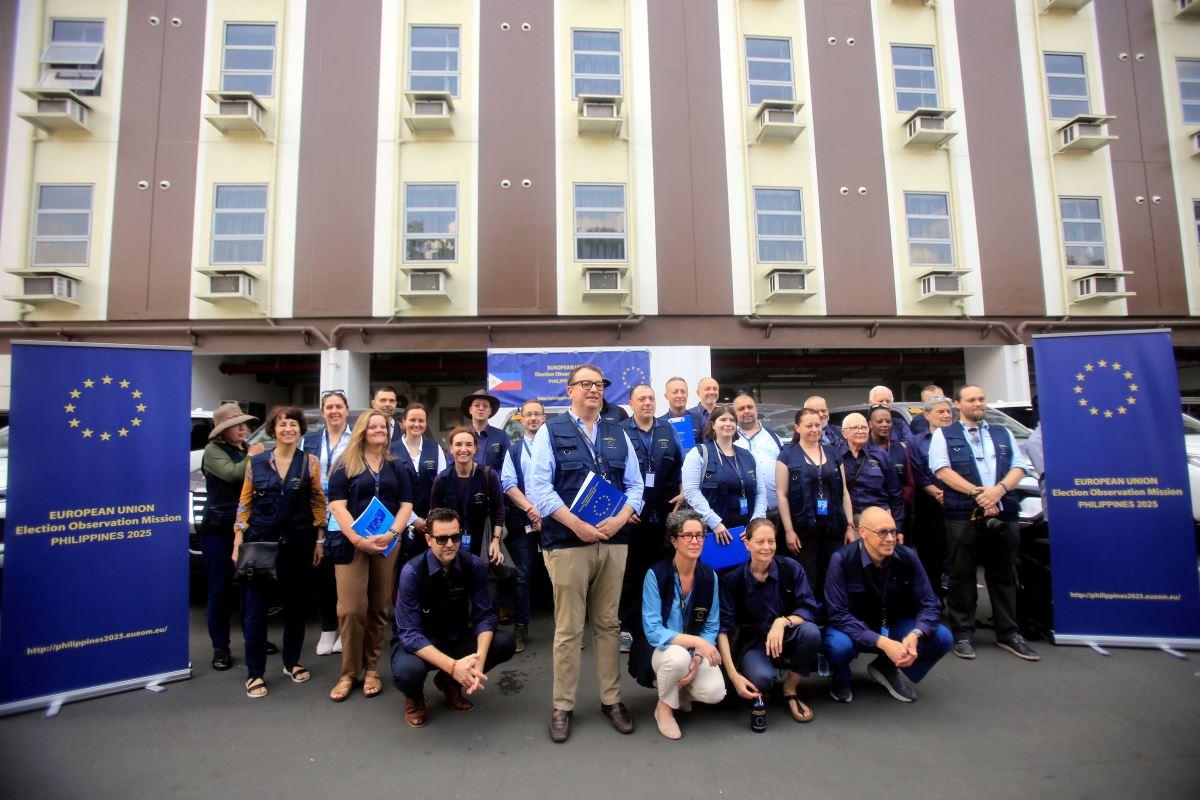EU deploys over 200 election observers for May 2025 polls

The European Union (EU) has deployed over 200 election observers for the May 2025 elections, Deputy Chief Observer Manuel Sanchez de Nogues of the EU Election Observation Mission (EOM) said Wednesday.
Sanchez de Nogues said the deployment of EU election observers from 27 member states of the EU was done for the first time on the invitation of the Philippine government.
“In response to that invitation, the EU, for the first time, deployed EOM to the Philippines. It started in March with 11 [election observers from EU] based in Manila. Today, you are seeing part of the 72 long term [EU election observation mission] observers in teams of two who will be travelling to different regions of the country,” Sanchez de Nogues told reporters.
All in all, 36 teams of two will be deployed in the country's 18 regions, Sanchez de Nogues said.
“In some regions, there will be more than one team because there are less than 36 regions in the country. So we are present as of today, as I speak, in all the regions of the country,” he added.
Meanwhile, 104 members of the said delegation will serve as short term election observers, he said.
“In total, the mission will be composed on election day of more than 200 election observers. How do we work? The EU has developed a robust and consistent methodology used in 75 countries, in over 200 election observation missions. We observe all stages of the electoral process, travel extensively, combine urban environments and rural areas, listen to interlocutors, starting from the Commission on Elections, political parties, candidates, civil society organizations and of course voters,” he said.
“The EU has developed a comprehensive and consistent election observation methodology that is implemented the same way in all countries where we observe. We observe all stages of the electoral process because the election is not a one-day event of election day, but a process that starts with the registration of candidates, registration of voters,” Sanchez de Nogues said.
He said his team will also observe the campaign activities of candidates, the voter responses, campaign finance, the role of the media and social media, election day and the tally of votes, and even how the authorities resolve election disputes.
During the May election week, Sanchez de Nogues said that 100 more observers from the EU member states will join the mission which will include members of the EU Parliament, EU-member states accredited diplomats, among other election experts.
Sanchez de Nogues, however, said their mission is about giving recommendations for improvement, not interference.
“We are [an] independent body. We do not interfere in the process. That means we don’t assess until the process is finished,” he said.
“It means that we abide by the International Declaration of Principles on Electoral Observation that was endorsed in the United Nations in 2005. And that we abide by the laws of the Philippines. And we assess the elections based on the the laws of the country and international principles for democratic elections and political participation. We won’t make the assessment until two days after the elections, which is May 14,” he added.
Further, Sanchez de Nogues said that the European election observers will be deployed even in areas identified as election hotspots, including in the Bangsamoro Autonomous Region in Muslim Mindanao.
“We are used to working in difficult environments, and we've been working in elections in many, many countries in the world. We have experience, and based on that experience that we have learned from other countries or from other missions, we will be able to observe the elections even in the most challenging situations,” he said.
“We will have our own security and we will have arrangements with the national police and the security forces of the country,” he added. —KG, GMA Integrated News
For more Eleksyon 2025 related content and updates, visit GMA News Online's Eleksyon 2025 microsite.





